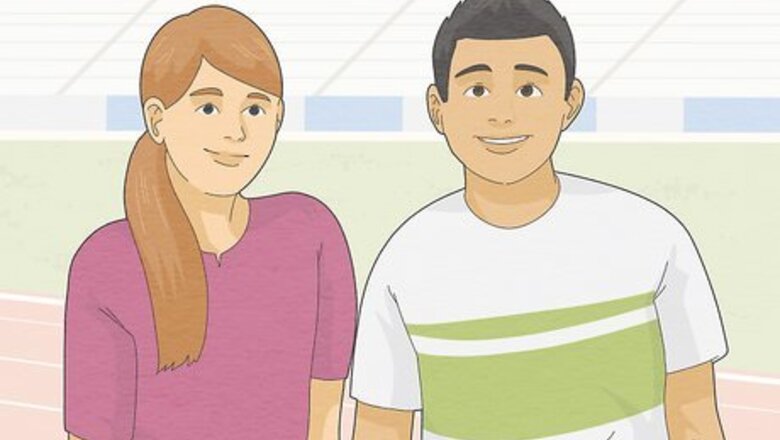
views
- Start working out at the gym between the ages of 12–16. The minimum age may vary on the location.
- Children need permission from a parent or guardian to sign up for a gym membership.
- Some gyms may require supervision for children under 18 to use gym equipment.
What’s the minimum age to go to a gym?
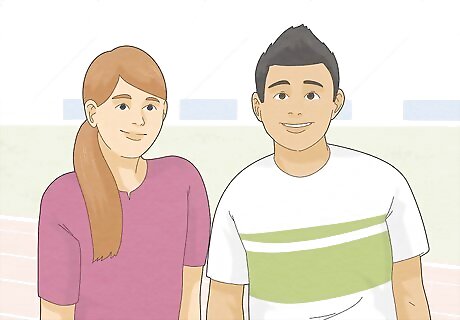
Children between 12–16 are usually allowed, but it varies by location. Every gym has to follow its state’s laws and restrictions for age minimums at a gym, so 2 separate locations may have different requirements. However, most gyms require a parent or guardian to start a membership or use the equipment. Whether you’re a parent or child, reach out to the gyms in your area to learn about their age policies. Ask about discounts for children and family memberships at the gym to see if you can save some money. Most gyms don’t allow access for kids under 12, but they may offer childcare so parents can work out without distractions.
Age Policies for Gyms
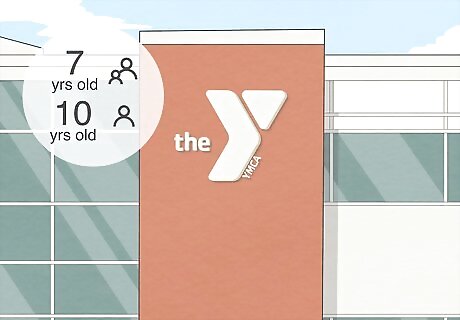
YMCA: 7 with supervision; 10 alone The YMCA is one of the most family-friendly places to work out. If you’re a parent or guardian, your child can start working out in the YMCA fitness center once they turn 7 as long as you’re in the same room. After they turn 10 years old, your child just needs to complete a fitness center orientation class to use any of the equipment on their own. The YMCA usually offers special discounts for children under 18 and families. Children ages 6 and under are not allowed in the YMCA fitness center.
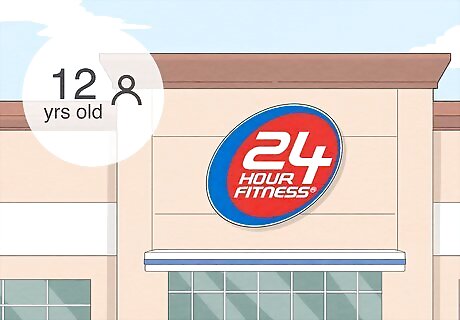
24 Hour Fitness: 12 without supervision If you’re 12, you can start working out as a member or guest as long as your parent or guardian signs a waiver. While 24 Hour Fitness doesn’t allow children younger than 12 on their equipment, they may offer Kids’ Club babysitting or youth programs. 24 Hour Fitness allows you to add family members to your membership to avoid multiple initiation fees.
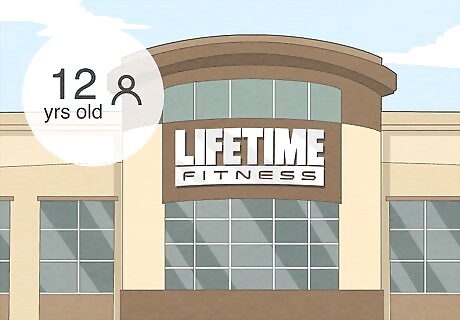
Life Time Fitness: 12 without supervision As long as you have a membership or are a guest at Life Time Fitness, you’re welcome to all the exercise equipment, fitness classes, and other amenities once you turn 12. Life Time Fitness also offers a child center for kids under 12 so if you’re a parent, you can work out without having to supervise your children. Life Time Fitness lets you add children to a membership for a discounted rate.
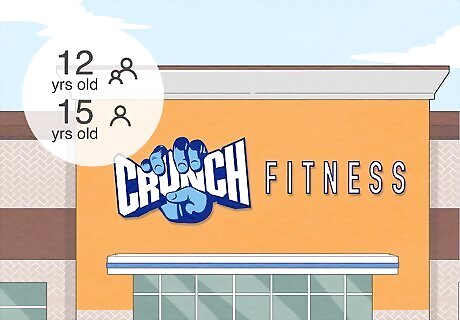
Crunch Fitness: 12 with supervision; 15 alone If you’re a child between 12–14, a parent or guardian has to be with you at all times if you want to use any of the workout equipment at Crunch Fitness. After you turn 15, a parent or guardian just needs to fill out a consent form for you to work out by yourself.
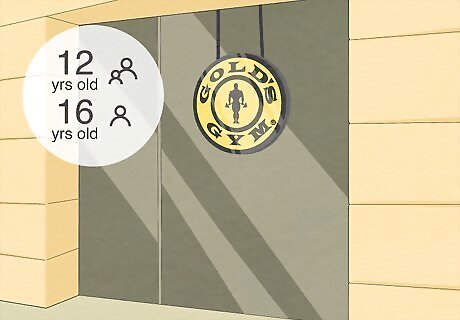
Gold’s Gym: 12 with supervision; 16 alone If you’re a parent to a child 12 or older, you can start a membership for your kid at Gold’s Gym as long as you work out with them. Once your child turns 16, they’re free to go to the gym on thier own and use any of the equipment as long as they have their own membership. No one under 12 can go to Gold’s Gym or use the equipment unless there’s a special youth event.
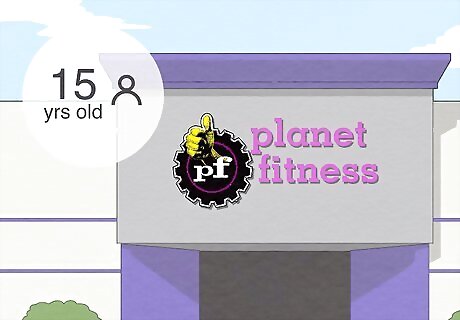
Planet Fitness: 13 with supervision; 15 alone As a teen, you’re able to sign up for a Planet Fitness memberships right when you turn 13 as long as a parent or guardian allows it. Until you’re 15, you’re only able to work out when your parent or guardian is with you, but after that, you’re able to work out on your own. Planet Fitness doesn’t offer childcare services, but you’re allowed to bring underage kids as a parent as long as you don’t leave them unattended.
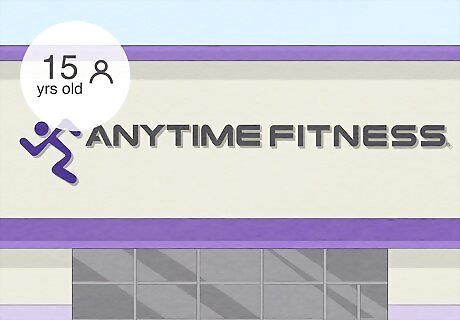
Anytime Fitness: 15 without supervision Anytime Fitness offers an underage memberships to teens starting at 15 as long as a parent or guardian is there when you sign up. After paying for membership fees and signing a waiver, you can use any of the workout equipment in the gym without parental supervision.

Equinox: 15 with supervision; 18 alone If you’re a parent, you can bring your kids that are 15 and up to work out at Equinox as long as you sign a waiver during sign-up and accompany them at all times. Once your child turns 18, they’re able to use any of the facility amenities on their own. Children under 15 aren’t allowed to use equipment at Equinox unless it’s part of a youth program. EXPERT TIP Laila Ajani Laila Ajani Fitness Trainer Laila Ajani is a Fitness Trainer and founder of Push Personal Fitness, a personal training organization based in the San Francisco Bay Area. With over 10 years as a trainer and exercise specialist, Laila has expertise in competitive athletics (gymnastics, powerlifting, and tennis), personal training, distance running, and Olympic lifting. Laila is certified by the National Strength & Conditioning Association (NSCA), USA Powerlifting (USAPL), and she is a Corrective Exercise Specialist (CES). Laila Ajani Laila Ajani Fitness Trainer The youngest age a kid should visit a gym is seven years old. Even so, they must use extremely lightweight equipment. Prepubescent children aged 12 and under should stick to bodyweight exercises. Once your kids pass puberty, you can slowly start introducing weights into their exercise routines with proper guidance and instructions.
Doing Safe & Effective Workouts
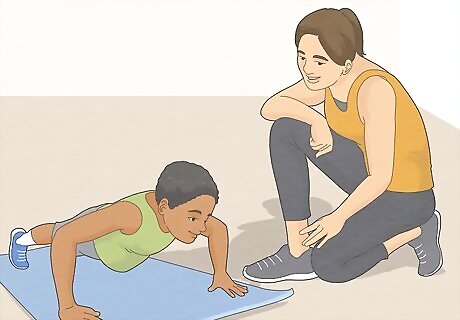
Make sure there’s supervision. If you’re a parent, exercise in the same area as your kids so you’re able to help them through using machines properly and watch their form. If you’re a kid or teen alone at the gym, don’t be afraid to ask a coach or personal trainer for help. If you’re a kid, ask a friend to workout with you so you can learn to use the equipment together.
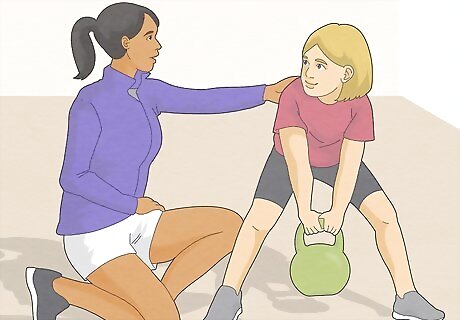
Choose exercises you enjoy doing. As a kid, try out a few different machines and equipment to see what exercises you enjoy doing the most. Some good starting workouts that are easy for beginners include running on a treadmill, cycling, lifting free weights, and bodyweight exercises. Once you find a few exercises you like, add them to your regular routine. Start working out with low weights at first to ensure you maintain proper form and control. Doing exercises that you enjoy help you stay motivated to keep working out. As a kid, try to plan at least 60-minutes of physical activity every day. As a parent, avoid forcing your children to do exercises they don’t like since it may make them develop negative feelings about working out.
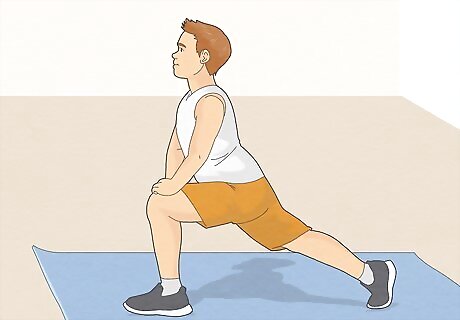
Warm up before and cool down. When you’re a kid, loosen up your muscles and get your heart pumping with a simple dynamic warm-up before your regular exercise routine. Spend about 10 minutes doing jumping jacks, taking a short jog on a treadmill, or doing lunges. At the end of your workout, don’t forget to stretch your muscles and walk slowly for around 5–10 minutes to cool down. Warming up and cooling down helps you prevent injuries and helps improve your flexibility.
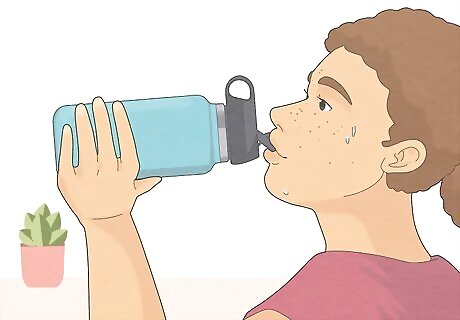
Stay hydrated throughout the workout. Carry a water bottle so you can rehydrate during an intense workout session. Try to have 2–3 cups (470–710 ml) of water in the hours before your workout, and drink another ⁄2–1 cup (120–240 ml) for every 15 minutes you’re exercising. Once you finish your workout, keep sipping water. Working out makes you sweat and easily get dehydrated, so drinking water helps replenish your body. If you’re exercising for longer than 1 hour, then drink a sports drink instead to replenish electrolytes and feel energized.
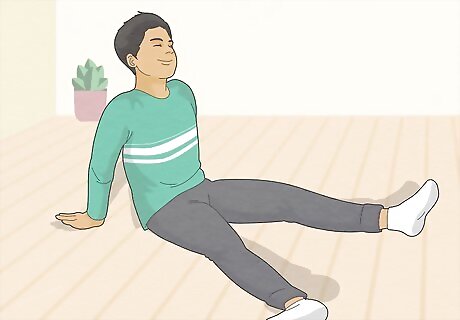
Schedule a rest day between workouts. Working the same muscles multiple days in a row puts a lot of strain on your body and could lead to injuries, especially for growing children. After you target a group of muscles during your workout, wait at least a day or two to do the same exercises again. Alternate what muscle groups you work out each day. For example, work your arms one day and then target your legs the next day. Work out in a gym at least 3 days a week to help build strong muscles and bones.
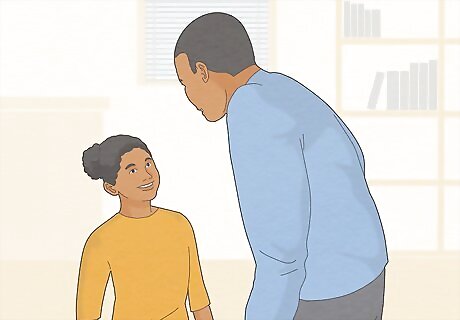
Use positive language about body image. Children and teens may have unrealistic expectations for their body image from social media and advertisements. As a parent, make sure you’re using supportive language around your kids rather than making comments about appearance. Focus on complimenting all the hard work and effort they’ve put towards their fitness goals. As a kid, try to limit your time on social media so you’re not as exposed to unrealistic body images.
Exercise Benefits for Kids
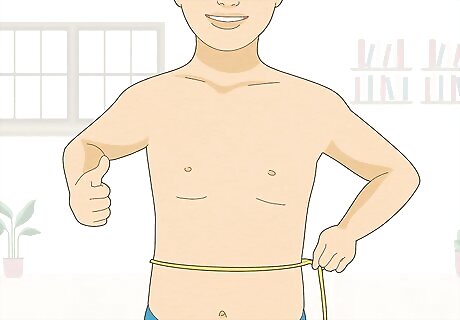
Easier weight management It’s normal for bodies to change and grow during puberty, but staying active can help you manage a healthy weight as a kid. Getting into the habit of exercising when you’re younger makes it more likely that you’ll stick with it so you’ll continue to burn calories and fat.
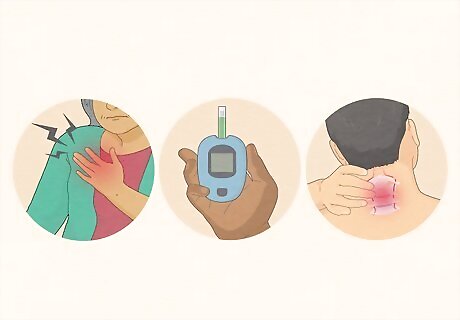
Lower chances of chronic disease Since exercise helps your body burn fat and regulate itself, you’re less likely to develop conditions like heart disease, hypertension (high blood pressure), type 2 diabetes, osteoporosis, and much more as you grow up. Try to get about 60 minutes of physical activity every day to help you stay healthy.
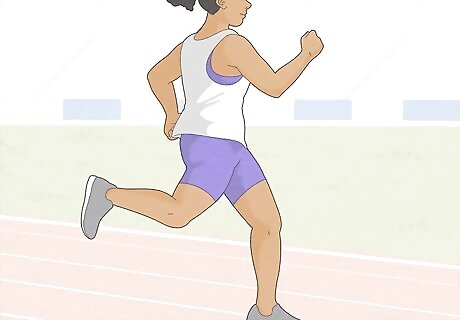
Stronger bone development Any weight-bearing activity, like walking, running, lifting weights, and aerobics, help strengthen your bones when you’re growing. That means you’re less likely to fracture or break bones since they’re more dense. EXPERT TIP Laila Ajani Laila Ajani Fitness Trainer Laila Ajani is a Fitness Trainer and founder of Push Personal Fitness, a personal training organization based in the San Francisco Bay Area. With over 10 years as a trainer and exercise specialist, Laila has expertise in competitive athletics (gymnastics, powerlifting, and tennis), personal training, distance running, and Olympic lifting. Laila is certified by the National Strength & Conditioning Association (NSCA), USA Powerlifting (USAPL), and she is a Corrective Exercise Specialist (CES). Laila Ajani Laila Ajani Fitness Trainer Children should not focus excessively on muscle building before they reach puberty. When exercising with kids, parents should not worry about doing a set amount of exercise or reps in a workout session. Instead, they should focus on introducing fun activities that make kids excited about fitness and about starting this healthy habit at an early age.
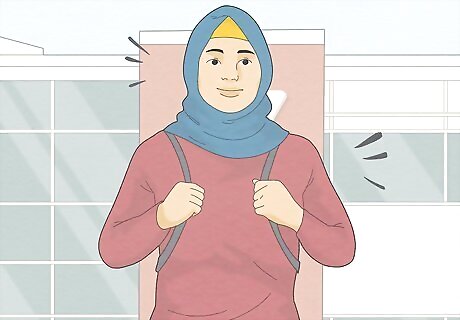
Improved confidence & self-esteem When you exercise, your brain releases endorphins and dopamine that help boost your mood and make you feel amazing. Since working out also helps your body look and feel better, it makes you more confident in your appearance so you’re not as likely to feel depressed or ashamed.
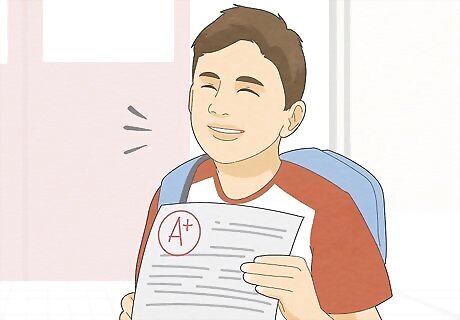
Better academic performance Working out helps improve your alertness and attentiveness, plus it helps promote nerve cell growth so it’s easier to remember information. Since exercise also reduces stress and makes you more motivated, it’s the perfect addition to your routine if you have a hard time focusing in class and want to improve your grades.



















Comments
0 comment